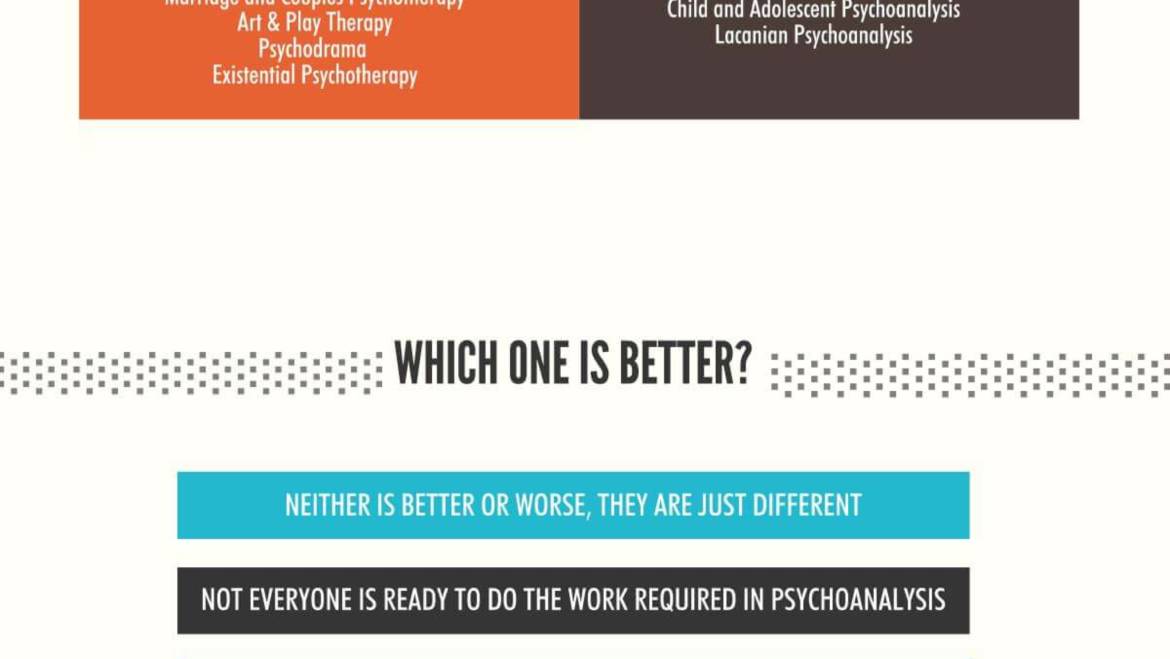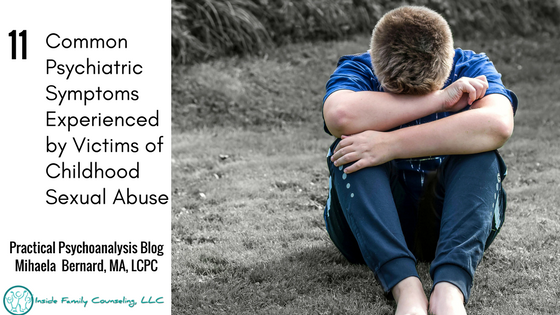Psychoanalysis? Psychotherapy? Aren’t they the same thing?… Not exactly. Psychoanalysis is an experience – you cannot call yourself a psychoanalyst without having done your own analysis. The same is not always true for psychotherapy – not all psychotherapists have gone through their own therapy. In order to become a therapist you need to go through years of schooling, practice for at least two years after graduate school and pass your licensure exam. Only then you can go for psychoanalytic training.
Therapy is a rather generic term – social workers, counselors, psychologists and psychiatrists can all call themselves therapists. Before there was psychotherapy, however, there was psychoanalysis. Freud “invented” the psychoanalytic method, or the “talking cure,” together with his friend and mentor Breuer, a Viennese psychiatrist, who worked with female hysterics (an old-fashioned diagnostic term for what today is classified as conversion disorder). In his work with his patient Anna O., a pseudonym for Bertha Pappenheim, one of the first feminists, Breuer discovered that after she was able to speak about the origin of her symptoms, they disappeared. Hence, “the talking cure.” The presumption that talking has healing powers fuels many psychotherapeutic practices today. No one argues against that. What is the difference between psychotherapy and psychoanalysis then?
First, psychotherapy deals with what we call the ego, the I or the active agency with which you make decisions on a daily basis. In contrast, psychoanalysis deals with the unconscious – those experiences that are beyond language, outside of our awareness; the part of us that was vastly suppressed by culture, social norms, rules and regulations. Second, the goals of psychoanalysis and psychotherapy are also different. Psychotherapy attempts to restore a persons relationship to the social norms and regulations, while psychoanalysis works to restore a person’s relationship to their sexuality. Psychotherapy works to strengthen the ego, while psychoanalysis works to strengthen the subject’s relationship to their own unconscious. Psychotherapists use their relationship with you, the client, to influence your decision-making, to teach coping strategies, change behaviors or thoughts, and to modify the ways you relate to others. Psychoanalysts use their relationship with you to help you reorganize the way you relate to yourself and your body with all of its human qualities. What happens with your relationships afterwards is secondary and entirely up to you!
Many people are skeptical that such thing as the unconscious actually exists. Certainly, there is no way to physically grasp the unconscious but the evidence in support of it speaks quite loudly. Freud, for instance, discovered that he could plant a thought into his patient’s mind under hypnosis that the patient executed into an action after being released from the hypnotic state, having no recollection of the fact that Freud asked them to do the action in the first place. Instead, the patient fabricated an explanation and was convinced in its validity. Believe it or not, the unconscious does exist and psychoanalytic practice, which has changed dramatically since its invention, has proven it over and over again throughout the years. The question is, do you want to know about your unconscious? Do you wish to have a deeper understanding of yourself and your actions?








